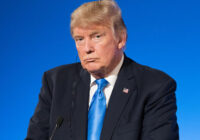The history that citizens of modern nations study as the true record of their past may in reality be nothing more than a set of new mythologies.
In an article for Aeon, Oxford historian Josephine Quinn tells us that “Modern nationalism created history as we know it today: what we learn in school, what we study at university, what we read at home is all shaped by the forms and norms of our nation-states.”
Here is today’s 3D definition:
Nationalism:
The belief that a set of boundaries created by historical chance define a mystical entity with a vocation of political domination over the lands and people within its borders and, in cases where its mystical qualities are exceptionally compelling, beyond its own borders
Contextual note
Quinn reminds us that at some point in the last millennium a significant reversal took place. Once history had produced the modern concept of the nation, nations began producing history. Simultaneously, the West put forward the idea of the primacy of science, elaborated from empirically determined facts, over more traditional forms of storytelling. This had the effect of marginalizing all existing mythologies as fantasy, leaving the field open to replacing the old stories — particularly religious and philosophical narratives, epic poems and moral fables — by a national story based on what are presumed to be hard historical facts.
When we examine one of the major political themes of the day, the rise of populism, we may begin to discover the extent to which nations process and control what is now assumed to be the “science” of history. But that requires standing back from any particular national narrative to look at how complex historical events play out in reality. Standing back requires discipline and courage precisely because, as Quinn points out, what we learn, study and read is “shaped by the forms and norms of our nation-states.” In other words, our education and our media have formatted us to see history exclusively through the lens of “national destiny.”
This formatting can induce the artificial emotional state that, in 2016, made a majority of Britons vote for Brexit and a majority of the American Electoral College (if not the people) to follow the call to “make America great again.” But Nigel Farage and Donald Trump, though in some ways extreme, are not exceptional. The Democrat Madeleine Albright, a former secretary of state, could rely on her own inculcated understanding of history to proclaim: “[I]f we have to use force, it is because we are America; we are the indispensable nation. We stand tall, and we see further than other countries into the future, and we see the danger here to all of us.”
Historical note
Most people assume that the division of the world into distinct nation-states corresponds to a fundamental law of human nature. It follows from Aristotle’s ancient claim that “the state is a creation of nature, and that man is by nature a political animal.” But politics is one thing and nation-states another. The specific notion of the “nation” emerged only recently in history. Aristotle’s “state” encompassed any form of legal and administrative organization, from kingdoms (such as Macedonia) to city states (such as Athens). It didn’t include anything resembling the modern notion of national destiny or national identity.
 The concept of nation derives from the Latin word for “to be born” (nascere). In Europe’s Middle Ages, “nation” functioned as a fundamentally ethnological concept, to indicate a common origin for a group of people. As feudal organization with its networks of fealty gave way to the dominance of kingdoms in Europe — implying large-scale political and administrative organization — the idea of a nation became attractive as a means of imposing unity over areas marked by linguistic and ethnic diversity. It became an essential political task to create and spread a “feeling of collective belonging” (“le sentiment d’une appartenance commune”), even where the basis for such feeling didn’t exist.
The concept of nation derives from the Latin word for “to be born” (nascere). In Europe’s Middle Ages, “nation” functioned as a fundamentally ethnological concept, to indicate a common origin for a group of people. As feudal organization with its networks of fealty gave way to the dominance of kingdoms in Europe — implying large-scale political and administrative organization — the idea of a nation became attractive as a means of imposing unity over areas marked by linguistic and ethnic diversity. It became an essential political task to create and spread a “feeling of collective belonging” (“le sentiment d’une appartenance commune”), even where the basis for such feeling didn’t exist.
Quinn’s article, focusing on the history of ideas surrounding Phoenician “civilization,” deconstructs one example of pseudo-historical invention put forward by modern nations. It also reveals our aptitude to assume, wrongly, that nations existed in the ancient world, simply because the world we know appears to be fatally divided into nations.
In short, the history we citizens of modern nations study and promote as the true record of our past and the foundation of our identity — while inciting us to believe it has replaced the old traditional mythologies — may in reality be nothing more than a set of new mythologies that fail or refuse to acknowledge their own basis in self-interested fantasy.
*[In the age of Oscar Wilde and Mark Twain, another American wit, the journalist Ambrose Bierce, produced a series of satirical definitions of commonly used terms, throwing light on their hidden meanings in real discourse. Bierce eventually collected and published them as a book, The Devil’s Dictionary, in 1911. We have shamelessly appropriated his title in the interest of continuing his wholesome pedagogical effort to enlighten generations of readers of the news.]
The views expressed in this article are the author’s own and do not necessarily reflect Fair Observer’s editorial policy.
Photo Credit: Cinematographer / Shutterstock.com
Support Fair Observer
We rely on your support for our independence, diversity and quality.
For more than 10 years, Fair Observer has been free, fair and independent. No billionaire owns us, no advertisers control us. We are a reader-supported nonprofit. Unlike many other publications, we keep our content free for readers regardless of where they live or whether they can afford to pay. We have no paywalls and no ads.
In the post-truth era of fake news, echo chambers and filter bubbles, we publish a plurality of perspectives from around the world. Anyone can publish with us, but everyone goes through a rigorous editorial process. So, you get fact-checked, well-reasoned content instead of noise.
We publish 2,500+ voices from 90+ countries. We also conduct education and training programs
on subjects ranging from digital media and journalism to writing and critical thinking. This
doesn’t come cheap. Servers, editors, trainers and web developers cost
money.
Please consider supporting us on a regular basis as a recurring donor or a
sustaining member.
Will you support FO’s journalism?
We rely on your support for our independence, diversity and quality.





